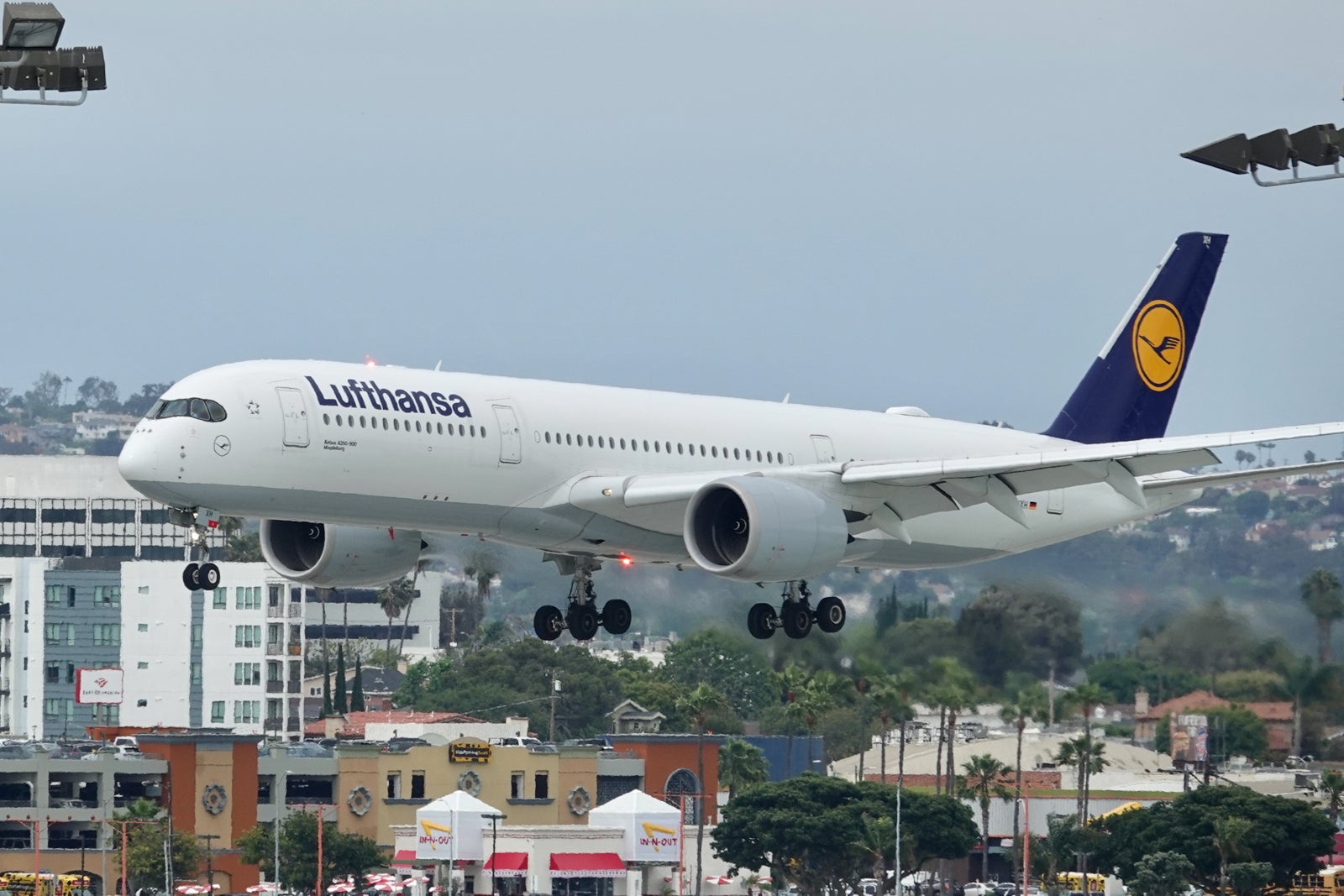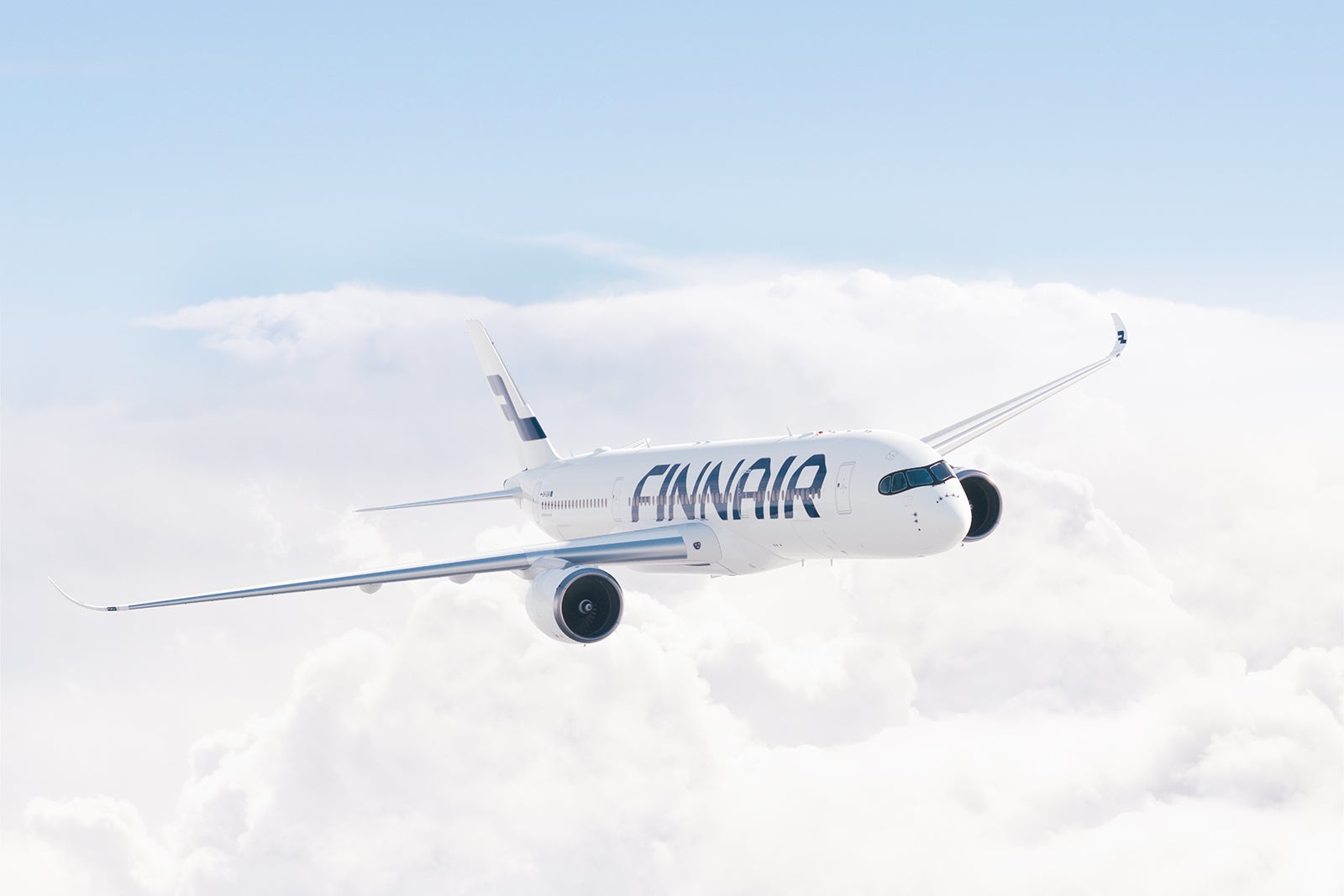Travelers flying to or from Europe on Thursday are seeing mass cancellations and delays due to ongoing strikes in both Germany and Finland.
While strikes were a nonstop topic last year, so far this year, travelers have emerged relatively unscathed. However, as we enter February, we’re once again seeing how disruptive a disgruntled workforce can be in the European travel sector.
Related: When European airports and trains will face strike disruption over the coming months
Germany security strikes
On Thursday, around 25,000 aviation security staff members staged walkouts across airports in Germany, including Frankfurt Airport (FRA), Hamburg Airport (HAM), Bremen Airport (BRE), Berlin Brandenburg Airport (BER), Leipzig/Halle Airport (LEJ), Dusseldorf Airport (DUS), Cologne Bonn Airport (CGN), Hannover Airport (HAJ), Stuttgart Airport (STR) and Dresden Airport (DRS).
German national carrier Lufthansa on Wednesday advised its passengers not to travel to German airports at all during the strikes. Instead, the carrier urged affected passengers to rebook flights before Feb. 8.
The airline issued a statement via Instagram:
Verdi has announced strikes by security staff at the German airports Frankfurt, Hamburg, Hannover, Bremen, Berlin, Leipzig, and Dresden for Thursday, February 1st. We strongly recommend that guests who want to start their journey at one of those airports on February 1st to not come to the airport, as there will be no access to the departure area.
At the time of writing, Frankfurt Airport has seen around 25% of its scheduled departures canceled, according to FlightAware. However, the worst hit are Stuttgart (49% of departing flights canceled) and Hamburg (40% of departing flights canceled). Berlin Brandenburg is also seeing significant disruption, with 48% of its scheduled departures currently canceled.
According to Lufthansa, Munich Airport (MUC) and Nuremberg Airport (NUE) are the only two German airports currently operating flights.
Departing flights at Berlin Brandenburg, Hamburg and Frankfurt are not currently expected to resume until at least 10 p.m. Thursday, with reports suggesting that departures at all airports in Germany may remain affected until at least 3 a.m. Friday.

Daily Newsletter
Reward your inbox with the TPG Daily newsletter
Join over 700,000 readers for breaking news, in-depth guides and exclusive deals from TPG’s experts
“We advise all originating passengers to avoid coming to the airport on February 1. Please contact your airline or travel operator for information regarding your flight,” Frankfurt Airport said in a statement on X (formerly known as Twitter). “Transfer and connecting passengers should also expect strong disruptions and delays due to the strike.”
The strikes are an echo of similar ones that took place in the country in March of last year, causing similar levels of disruption to air travel.
Beyond air travel, the strikes are set to continue into Friday across bus, tram and metro services when other members of the same union stage their own walkouts.
Why are airport workers in Germany on strike?
Pay is often the issue in these situations. According to the Verdi trade union, which represents the workers, around 25,000 staff members are asking for a wage increase of 2.80 euros (about $3) per hour to offset inflation, alongside increased bonuses and overtime pay.
Following the strike, additional wage negotiations are expected to resume Tuesday-Wednesday.
Finland transport strikes
Strikes across various sectors are also disrupting travel in Finland.
National carrier Finnair expects to cancel approximately 550 flights over the next 48 hours as workers across the country join forces in what is being called a “political strike.”
“We’ll process the cancellations one flight at a time on Tuesday and Wednesday with customers offered alternative routings. We aim to operate a handful of flights during the strike,” Finnair said in a statement on X.
The strikes are causing significant disruption at almost all airports across Finland, according to aviation group Finavia, which owns 20 of the nation’s 27 airports.
At least six of Finavia’s airports are closed for the duration of the strikes: Joensuu Airport (JOE), Kajaani Airport (KAJ), Kemi-Tornio Airport (KEM), Kokkola-Pietarsaari Airport (KOK), Pori Airport (POR) and Savonlinna Airport (SVL).
Elsewhere, capacity restrictions are in place at Helsinki Airport (HEL), Ivalo Airport (IVL), Jyvaskyla Airport (JYV), Kittila Airport (KTT), Kuopio Airport (KUO), Kuusamo Airport (KAO), Oulu Airport (OUL), Rovaniemi Airport (RVN), Tampere-Pirkkala Airport (TMP), Turku Airport (TKU) and Vaasa Airport (VAA).
What is behind the Finland union strikes?
Unlike Germany’s workforce strikes, which are a direct protest against employers, strikes in Finland are against the Finnish government.
Broadly speaking, the protests at the center of the strike are against the right-wing Finnish government’s planned labor market reforms, cuts to social welfare and attempts to limit political strikes.
What should you do if your flight has been affected?
If you were due to travel through Germany or Finland during the strikes, your airline likely has already informed you that your flight was canceled or is extremely likely to be.
In this instance, given that the strikes were not unforeseen, your airline will probably have given you the option to rebook your flight for a later date, as has been the case with both Finnair and Lufthansa passengers. If this is not convenient for your travels, contact your airline directly to request a refund or future flight credit.
Often, when a flight is delayed for a sustained period or canceled, the airline you’re traveling with should offer you a place on the next available alternative flight, regardless of cost or carrier, in line with EU261 requirements. The airline may also offer you compensation, though the rules can vary when disruption is caused by strikes. Check out TPG’s guide to understanding EU261 flight compensation for more details.
However, due to the scale of the strikes in both Germany and Finland, there may not be an alternative flight available within the next 24 hours. In this scenario, you should contact your airline to discuss your options as soon as possible.
Bottom line
European travel is once again reeling from strike disruption, this time in Germany and Finland. While the effect of the strikes will likely be short-lived, this probably won’t be the last we hear about walkouts in both countries.
Finland, in particular, is in an unusual situation as its strikes are part of a political protest rather than directly tied to work conditions. Meanwhile, the Verdi-represented workers cover multiple sectors across Germany — airport, bus, tram and train. We’d like to remain optimistic. However, it’s unlikely that agreements that appeal to union members across all these sectors will be met overnight.
To stay up to date with ongoing strikes in Europe, check out our regularly updated guide here.
If you have been affected by the strikes and need more information regarding your options, check out six real-life strategies you can use when your flight is canceled or delayed.

